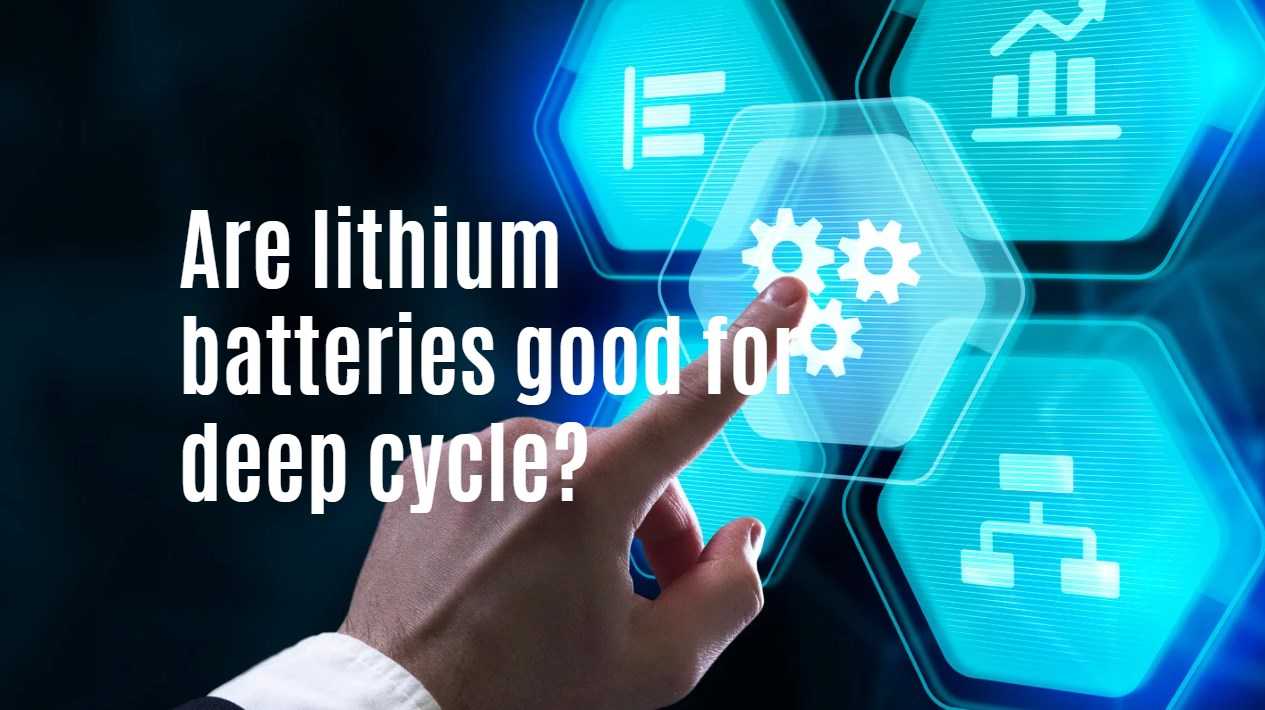Yes, lithium batteries are excellent for deep cycle applications. They offer high energy density, longer lifespan, and the ability to discharge deeply without significant degradation. This makes them ideal for applications requiring sustained power, such as renewable energy systems, electric vehicles, and marine use.
Understanding Deep Cycle Lithium Batteries
Deep cycle lithium batteries are specifically designed to provide a steady amount of power over extended periods. Unlike traditional lead-acid batteries that can suffer from performance issues when deeply discharged, lithium batteries can handle repeated deep discharges and recharges without losing efficiency or capacity. This capability is crucial in applications where consistent power delivery is essential.
Key Characteristics of Lithium Deep Cycle Batteries
- High Energy Density: Lithium batteries can store more energy in a smaller size compared to lead-acid counterparts, making them ideal for space-constrained applications.
- Long Lifespan: High-quality lithium batteries can last thousands of cycles (often between 2,000 to 5,000 cycles), significantly outlasting lead-acid batteries that typically last around 500 cycles.
- Depth of Discharge (DoD): Lithium batteries can be discharged up to 80-100% of their capacity without damaging the battery, whereas lead-acid batteries should not be discharged below 50% to maintain their lifespan.
- Faster Charging: Lithium batteries charge much faster than lead-acid batteries, allowing for quicker turnaround times between uses.
Applications of Deep Cycle Lithium Batteries
Lithium deep cycle batteries are used in various applications due to their reliability and performance:
- Renewable Energy Systems: They are commonly used in solar energy systems to store excess energy generated during the day for use at night or during cloudy periods.
- Electric Vehicles: Lithium batteries power electric cars, scooters, and bikes, providing the necessary energy for propulsion and auxiliary systems.
- Marine Applications: These batteries are ideal for powering boats and yachts, offering lightweight solutions with high energy output.
- Recreational Vehicles (RVs): Lithium batteries provide reliable power for RV appliances, lighting, and other electrical systems during trips.
Advantages of Using Lithium Batteries for Deep Cycle Applications
- Maintenance-Free Operation: Unlike lead-acid batteries that require regular maintenance (like checking electrolyte levels), lithium batteries are virtually maintenance-free.
- Improved Efficiency: Lithium batteries typically operate at over 90% efficiency compared to about 80% for lead-acid batteries, leading to better performance and lower energy losses.
- Temperature Resilience: Lithium batteries perform better in extreme temperatures compared to lead-acid alternatives, making them suitable for diverse environmental conditions.
- Lightweight Design: They are significantly lighter than lead-acid batteries, which is a considerable advantage in applications where weight is a critical factor.
Latest News
Recent advancements in lithium battery technology have underscored their growing importance in deep cycle applications:
- Enhanced Battery Management Systems (BMS): New BMS technologies improve safety and efficiency by monitoring battery health and optimizing charging cycles.
- Increased Adoption in Renewable Energy: As solar installations proliferate, the demand for efficient energy storage solutions like lithium deep cycle batteries continues to rise.
- Innovations in Battery Chemistry: Ongoing research is leading to the development of new lithium chemistries that enhance performance and lifespan even further.
These trends reflect a broader movement towards sustainable energy solutions and efficient power management systems.
Redway Expert Comment
In our extensive experience at Redway Battery, we find that lithium deep cycle batteries are truly transforming the landscape of energy storage. Their ability to deliver consistent power over extended periods while requiring minimal maintenance makes them an ideal choice for various applications. As we continue to innovate within the lithium LiFePO4 sector, we see tremendous potential in these advanced battery technologies.” In conclusion, lithium batteries are highly suitable for deep cycle applications due to their superior performance characteristics, including longevity, efficiency, and maintenance-free operation. Their growing adoption across various sectors highlights their effectiveness as a reliable power source for modern energy needs.




